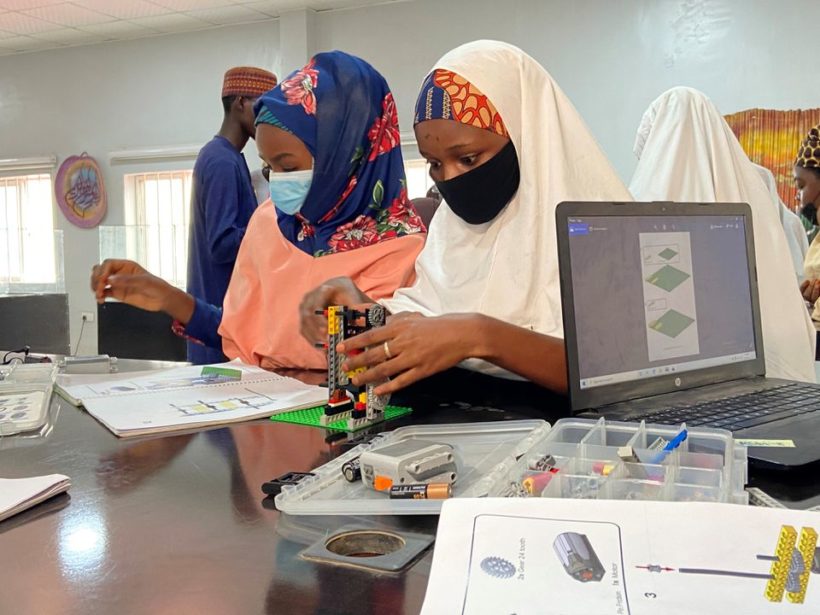
KANO, Nigeria, Aug 2 (Reuters) – Teenage girls in the northern Nigerian city of Kano are learning robotics, computing and other STEM subjects as part of an innovative project that challenges local views of what girls should be doing in a socially conservative Muslim society.
In a place where girls are expected to marry young and their education is often cut short, the Kabara NGO aims to widen their world view through activities such as building machines, using common software programmes and learning about maths and science.
“I came to Kabara to learn robotics and I have created a lot of things,” said Fatima Zakari, 12. One of her creations is a battery-powered spin art device to create distinctive artwork.
“I am happy to share this with my younger ones and the community at large for the growth of the society,” she said proudly.
Read more: Digital technologies are transforming African businesses, but what are the obstacles that remain?
Kabara is the brainchild of engineer Hadiza Garbati, who wanted to raise the aspirations of northern Nigerian girls and help them develop skills they might harness to start their own small businesses or enroll at university.
Since it started in Kano in 2016, Kabara has trained more than 200 girls, and Garbati is working on expanding her project to other northern cities.
It is a rare educational success story in northern Nigeria, where more than 1,000 children have been kidnapped from their schools by ransom seekers since December, causing many more to drop out because their parents are fearful of abductions.
Kabara, located in a safe area in the heart of Kano, has been unaffected by the crisis.
Garbati said she had overcome resistance from some parents by being highly respectful of Islamic traditions. The girls wear their hijabs during sessions.
Read more: The love affair: young Nigerians & disruptive mobile technology
Crucial to her success has been support from Nasiru Wada, a close adviser to the Emir of Kano, a figurehead who has moral authority in the community. Wada holds the traditional title of Magajin Garin Kano.
“The main reason why we are doing this is to encourage them, to open their minds,” said Wada.
“Tradition, not to say discourages, but does not put enough emphasis on the education of the girl child, with the belief that oh, at a certain age, she will get married,” he said.
“It is good to encourage the girl child to study not only the humanities but the science subjects as well because we need healthcare workers, we need science teachers,” he said, adding that even married women needed skills to manage their affairs.
Tech girls on the rise in Nigeria
(Reporting by Seun Sanni and Nneka Chile, writing by Estelle Shirbon; Editing by Bernadette Baum)

